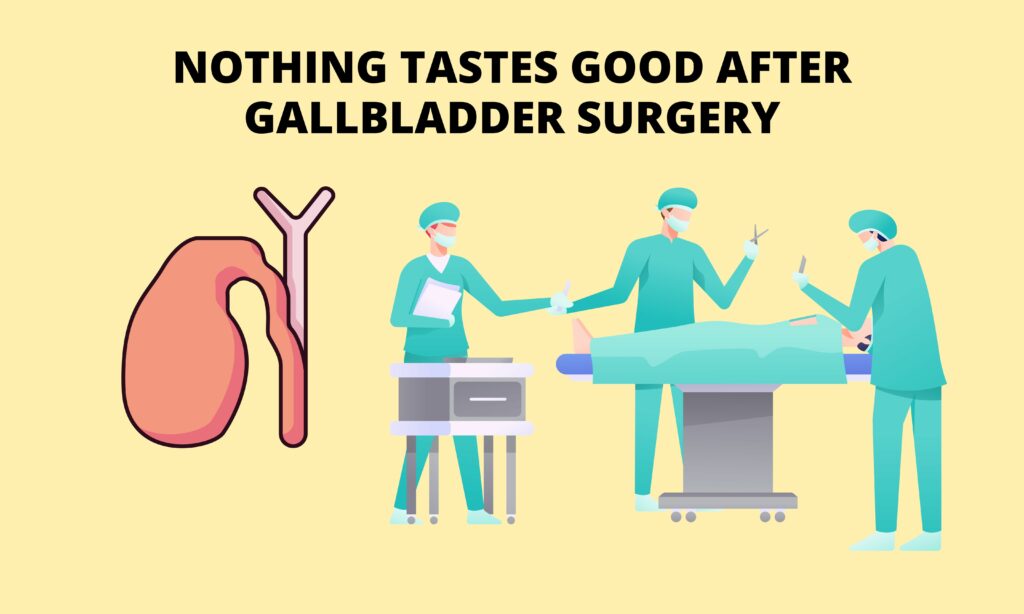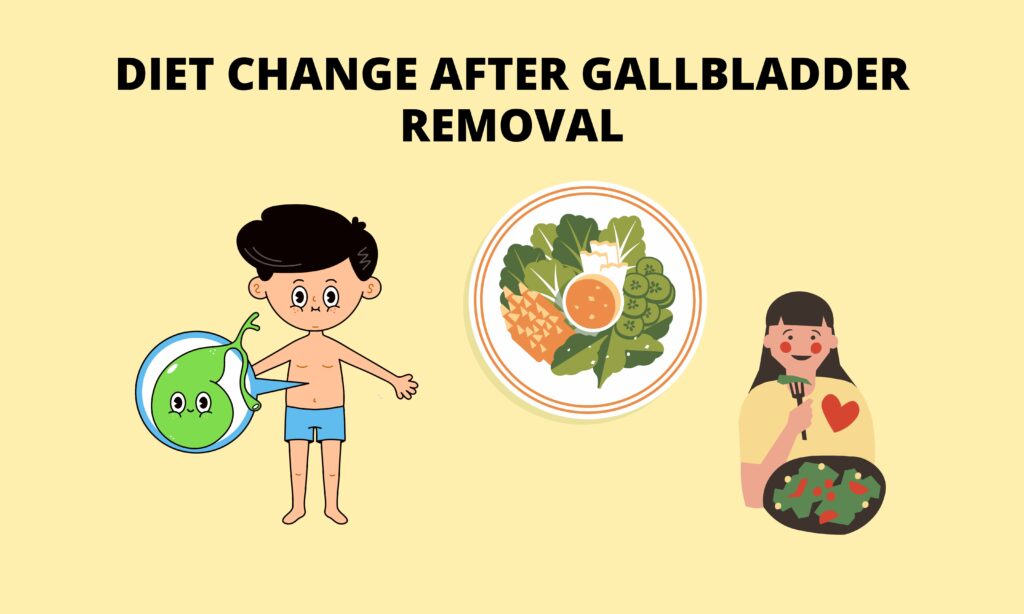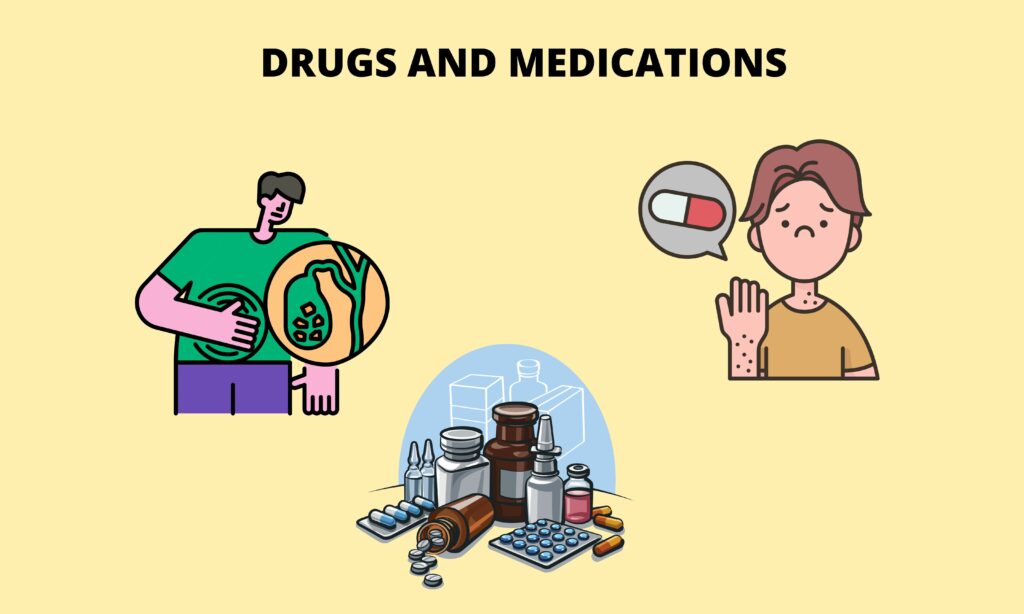
Gallbladder surgery, also known as cholecystectomy, is a common procedure that involves removing the gallbladder. While the surgery is generally safe and effective, many patients experience changes in their appetite and sense of taste following the procedure. One common complaint is that nothing tastes good after gallbladder surgery.
There are several reasons why patients may experience changes in their sense of taste following gallbladder surgery.
- One possible explanation is that the removal of the gallbladder can disrupt the digestive process, leading to changes in the way food is processed and absorbed. This can make it difficult for patients to enjoy the foods they once loved.
- Another possible explanation is that the anesthesia used during the surgery can temporarily affect the taste buds, leading to a loss of taste or altered sense of taste. This effect is typically temporary and should resolve on its own within a few days or weeks.
- If you are struggling with changes in your appetite or sense of taste following gallbladder surgery, there are steps you can take to help improve your experience. For example, you may find that experimenting with different flavors and textures can help to make food more appealing. You may also find that smaller, more frequent meals are easier to tolerate than larger meals.
It is also important to remember that these changes are often temporary and should improve over time. If your symptoms persist or worsen over time, however, it is important to contact your doctor to rule out any underlying medical issues.
In some cases, patients may benefit from working with a registered dietitian or nutritionist to develop a dietary plan that is tailored to their individual needs and preferences. By working with a professional, you can ensure that you are getting the nutrients your body needs while also exploring new foods and flavors that may be more appealing to you.
In conclusion, while it is common to experience changes in appetite and taste following gallbladder surgery, there are steps you can take to improve your experience. By experimenting with different flavors and textures, working with a dietitian or nutritionist, and being patient as your body heals, you can help to ensure a successful recovery and a return to enjoying the foods you love.
Common gallbladder conditions
The gallbladder is a small organ located beneath the liver that plays an important role in the digestive process. However, like any organ in the body, it can be susceptible to a range of conditions and diseases that can impact its function. Here are some of the most common gallbladder conditions:
Gallstones: Gallstones are small, hard deposits that can form in the gallbladder. They are typically made up of cholesterol or bilirubin and can cause a range of symptoms, including abdominal pain, nausea, and vomiting. In some cases, gallstones may need to be removed surgically, which can lead to changes in appetite and taste following the procedure.
Cholecystitis: Cholecystitis is a condition characterized by inflammation of the gallbladder. It is often caused by gallstones but can also occur as a result of other factors, such as infection or injury. Symptoms may include abdominal pain, fever, and nausea, and treatment may involve antibiotics or surgery.
Biliary dyskinesia: Biliary dyskinesia is a condition in which the gallbladder does not contract properly, leading to a range of symptoms, including abdominal pain, nausea, and vomiting. Treatment may involve medications to help regulate the gallbladder’s contractions or, in some cases, surgical removal of the gallbladder.
Gallbladder cancer: Gallbladder cancer is a rare but serious form of cancer that can develop in the gallbladder. Symptoms may include abdominal pain, nausea, and vomiting, and treatment typically involves surgery, chemotherapy, and/or radiation therapy.
Regardless of the specific condition, those suffering from gallbladder problems may find that nothing tastes good after gallbladder surgery. This is often due to the impact that the surgery can have on the digestive process, leading to changes in the way food is processed and absorbed by the body. However, with time and patience, many patients find that their sense of taste and appetite gradually return to normal. In some cases, working with a dietitian or nutritionist can be helpful in developing a dietary plan that supports recovery and helps to make food more appealing.
Diet change after gallbladder removal

After gallbladder removal surgery, also known as cholecystectomy, patients may need to make dietary changes to help manage their symptoms and support their recovery. One common issue that many patients experience is a change in their taste preferences and appetite, leading to the feeling that nothing tastes good after gallbladder surgery. Here are some dietary tips to help manage this issue:
- Start with small, frequent meals: Eating smaller, more frequent meals throughout the day can help to ease digestion and reduce the risk of nausea and vomiting. It can also help to stimulate appetite and make food more appealing.
- Focus on low-fat foods: Without a gallbladder, the body may have difficulty digesting high-fat foods, leading to symptoms like diarrhea and abdominal pain. Eating a low-fat diet can help to reduce these symptoms and make food easier to tolerate. Try incorporating lean protein sources like chicken and fish, and choose low-fat dairy products and healthy fats like avocado and nuts.
- Avoid trigger foods: Some foods may be more likely to cause digestive upset after gallbladder removal. Common trigger foods include fatty or fried foods, spicy foods, and processed foods. Pay attention to which foods seem to cause symptoms and avoid them as much as possible.
- Experiment with new flavors and textures: While it may be difficult to find foods that are as appealing as they were before surgery, experimenting with new flavors and textures can help to make mealtime more interesting. Try incorporating different spices and herbs, or experiment with new cooking techniques like grilling or roasting.
- Work with a dietitian or nutritionist: A dietitian or nutritionist can help to develop a personalized dietary plan that meets your specific needs and helps to manage symptoms. They can also provide guidance on how to gradually reintroduce foods that were previously off-limits, as well as offer tips for managing the feeling that nothing tastes good after gallbladder surgery.
While it may take time to adjust to a new way of eating after gallbladder removal, making these dietary changes can help to manage symptoms and improve overall health and well-being. With patience and perseverance, many patients find that their sense of taste and appetite gradually return to normal.
Bile reflux
Bile reflux is a condition where bile, a digestive fluid produced in the liver and stored in the gallbladder, flows back into the stomach and esophagus instead of being released into the small intestine to aid in digestion. This condition can occur after gallbladder surgery, as the bile ducts may become irritated or inflamed. One common symptom of bile reflux is the feeling that nothing tastes good after gallbladder surgery, as the acidic bile can cause a bitter or unpleasant taste in the mouth.
In addition to changes in taste preferences, other symptoms of bile reflux can include heartburn, nausea, vomiting, abdominal pain, and bloating. If left untreated, bile reflux can lead to complications such as esophageal damage, ulcers, and inflammation of the stomach lining.
Treatment for bile reflux typically involves dietary and lifestyle changes to help manage symptoms. Patients may need to avoid trigger foods that can exacerbate symptoms, such as spicy or fatty foods, alcohol, caffeine, and chocolate. Eating smaller, more frequent meals can also help to reduce the amount of bile in the stomach at any given time.
In some cases, medication may be prescribed to help reduce the amount of acid in the stomach and prevent further damage to the esophagus and stomach lining. Proton pump inhibitors (PPIs), for example, are a type of medication that can help to reduce the production of stomach acid.
If these treatments are not effective, surgery may be required to correct the underlying issue. This may involve repairing the sphincter muscle between the stomach and esophagus, or removing the damaged bile ducts.
If you are experiencing symptoms of bile reflux, it is important to talk to your doctor or a gastroenterologist. They can perform tests to diagnose the condition and develop a treatment plan that meets your specific needs. With proper management, many patients are able to find relief from the feeling that nothing tastes good after gallbladder surgery and other symptoms of bile reflux.
Post-operation infection
While gallbladder surgery is generally considered safe and effective, there is a risk of infection following the procedure. In some cases, patients may develop an infection at the site of the incision or in the abdominal cavity. One possible symptom of a post-operation infection is a change in taste preferences, with some patients reporting that nothing tastes good after gallbladder surgery.
Other symptoms of an infection following gallbladder surgery can include fever, chills, increased pain or tenderness at the incision site, and drainage or pus from the wound. It is important to seek medical attention if you experience any of these symptoms, as prompt treatment can help to prevent further complications.
Treatment for a post-operation infection may involve antibiotics to eliminate the infection and prevent it from spreading. Depending on the severity of the infection, hospitalization may be required to provide intravenous antibiotics and monitoring.
To help reduce the risk of infection following gallbladder surgery, it is important to follow proper wound care procedures and take any prescribed medications as directed. Patients should also be mindful of their diet and avoid foods that may increase the risk of infection, such as raw or undercooked meats and eggs.
In some cases, a post-operation infection may be a sign of a larger issue, such as a bile leak or blockage. These conditions can cause bile to build up in the abdominal cavity, leading to infection and other complications. If you are experiencing symptoms of an infection following gallbladder surgery, it is important to talk to your doctor or surgeon to determine the underlying cause and develop an appropriate treatment plan.
Overall, while a post-operation infection can be a serious complication of gallbladder surgery, prompt treatment and proper wound care can help to minimize the risk of complications and improve outcomes for patients. If you experience any symptoms of an infection or a change in taste preferences, it is important to seek medical attention as soon as possible.
Drugs and medications

Following gallbladder surgery, it is common for patients to experience changes in their taste preferences and appetite. This can be due to a variety of factors, including the impact of anesthesia and pain medications, as well as the removal of the gallbladder itself. While these changes are typically temporary and improve over time, some patients may find that their taste preferences do not fully return to normal.
Certain drugs and medications can also contribute to changes in taste preferences after gallbladder surgery. For example, antibiotics are often prescribed to prevent or treat infections following surgery, and these medications can cause a metallic taste in the mouth or a loss of taste altogether.
Pain medications, such as opioids, can also have an impact on taste preferences. These medications can cause nausea and vomiting, which can in turn affect the appetite and taste preferences. Additionally, opioids can cause dry mouth, which can make it difficult to taste or enjoy food.
In some cases, patients may be prescribed medications to manage bile reflux or other digestive issues following gallbladder surgery. These medications, such as bile acid sequestrants, can also have an impact on taste preferences and may cause a metallic or bitter taste in the mouth.
If you are experiencing changes in your taste preferences following gallbladder surgery, it is important to talk to your doctor or surgeon about any medications you are taking and whether they could be contributing to the issue. Your doctor may be able to adjust your medications or provide additional recommendations to help improve your symptoms.
Overall, while changes in taste preferences following gallbladder surgery can be frustrating, they are typically temporary and improve over time. By working closely with your medical team and following recommended post-operative care instructions, you can help to minimize the impact of these changes and improve your overall recovery experience.
FAQs
Q: How long does it take for taste preferences to return to normal after gallbladder surgery?
A: The length of time it takes for taste preferences to return to normal can vary from person to person. Some patients may notice improvements within a few weeks, while others may take several months to fully recover their taste preferences.
Q: Is there anything I can do to improve my taste preferences after gallbladder surgery?
A: Yes, there are several things you can do to improve your taste preferences after gallbladder surgery. One strategy is to focus on eating small, frequent meals throughout the day, rather than large meals that can be difficult to digest. Additionally, it can be helpful to avoid foods that are high in fat, as these can be harder for the body to process after gallbladder removal. Finally, you may want to experiment with different flavors and textures to find foods that are more appealing to your taste buds.
Q: Is it common to experience nausea and vomiting after gallbladder surgery?
A: Nausea and vomiting can be common side effects of gallbladder surgery, particularly in the first few days after the procedure. This is often due to the effects of anesthesia and pain medications, as well as the body’s natural response to the surgery itself. If you are experiencing severe or persistent nausea and vomiting after surgery, it is important to talk to your doctor, as this could be a sign of a more serious issue.
Q: Are there any dietary restrictions I should follow after gallbladder surgery?
A: Your doctor or surgeon will likely provide specific dietary instructions to follow after gallbladder surgery. In general, it is important to avoid foods that are high in fat or difficult to digest, as these can exacerbate digestive issues and make it harder for your body to recover. You may also want to avoid alcohol and caffeine, as these can be hard on the digestive system.
Q: What can I do if I am struggling to eat after gallbladder surgery?
A: If you are struggling to eat after gallbladder surgery, there are several strategies that may help. One approach is to focus on small, frequent meals throughout the day, rather than larger meals that can be harder to digest. You may also want to experiment with different flavors and textures to find foods that are more appealing to your taste buds. Finally, it can be helpful to talk to your doctor or a registered dietitian, who can provide additional recommendations for managing digestive issues and improving your overall nutrition after surgery.
Conclusion
In conclusion, many people experience changes in their taste after gallbladder surgery. This is a common side effect that can last for weeks or even months. It is important to follow a specific diet plan after surgery to reduce the risk of complications and help your body adjust to the changes. This includes avoiding fatty and spicy foods, eating small and frequent meals, and staying hydrated.
It is also essential to discuss any concerns or symptoms with your doctor, as they can help identify any underlying issues such as bile reflux or post-operative infections that may be causing the changes in taste. Medications may also be prescribed to alleviate any discomfort or complications.
In some cases, dietary modifications may not be enough to alleviate the taste changes, and other interventions may be necessary. It is crucial to work closely with your healthcare team to determine the best course of action for your individual needs.
While it may be frustrating to experience changes in taste after gallbladder surgery, it is important to remember that it is a common occurrence and that steps can be taken to manage it effectively. With proper dietary modifications, medications, and close monitoring by your healthcare team, you can successfully manage any post-operative changes in taste and continue to enjoy a healthy and fulfilling life.